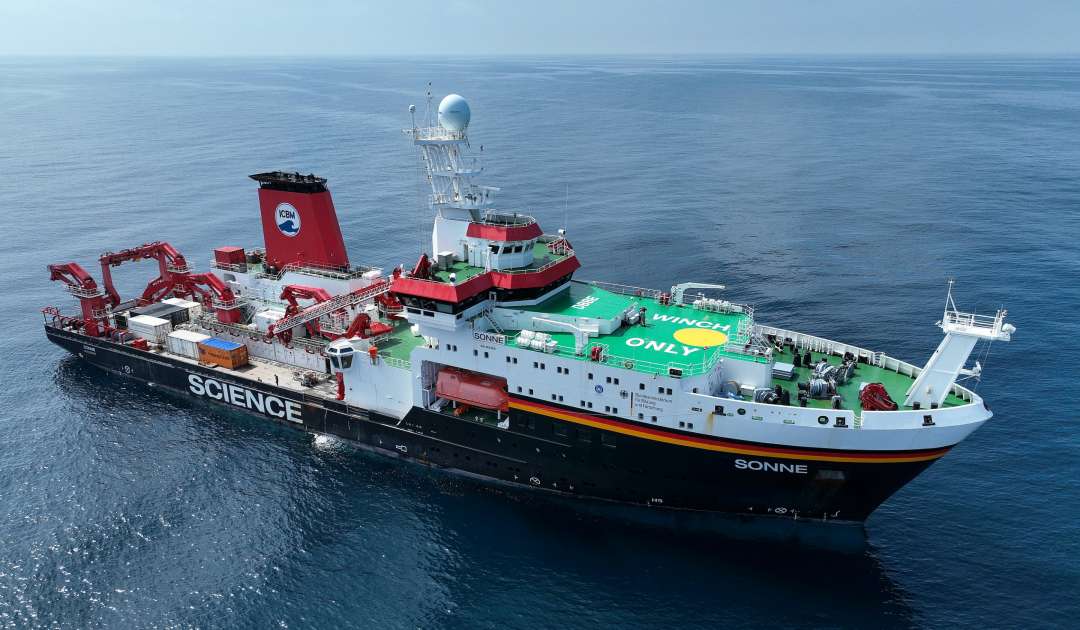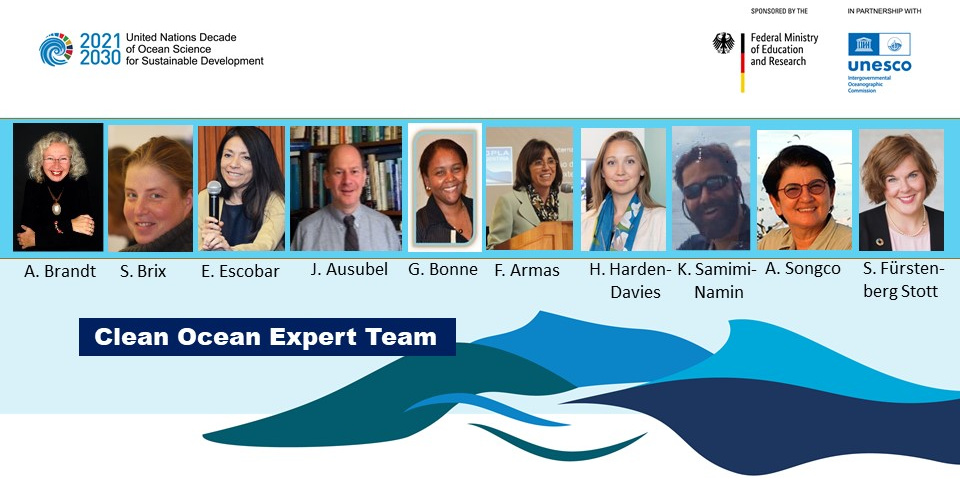
Science for our future
The ocean is the largest habitat on our planet, and is globally very important for humans. It is responsible for ~80 % of heat transport, provides ~50 % of global oxygen, absorbs ~33 % of the CO2 produced, and is home to 50-80 % of all species on Earth. The ocean is equally essential to our economy and society, as ~90 % of all goods are transported by sea, ~40 % of all people live on the coast and the oceans feed ~3 billion people. The ocean is very important for global trade, tourism and it harbours fossil fuels and much more.
Health, safety and human well-being, sustainable development and economic growth all heavily depend on a healthy ocean and on knowledge about the ocean. The oceans cover about 71 per cent of the Earth and should therefore play an important role in sustainable societal development. Ocean research brings together a variety of disciplines (physical, geological and chemical oceanography as well as marine biology) that study and provide data on the global marine environment (e.g. marine organisms, ecosystem dynamics, ocean currents, waves, geophysical fluid dynamics, matter fluxes, plate tectonics and seafloor geology). Research has already provided excellent contributions and foundations for the new UN Ocean Decade, such as in the Census of the Marine Life (CoML), the census of the world’s oceans.
In the Anthropocene, humans are having a huge impact on the ocean—even though it is indispensable to us and a valuable source of many resources (see above) and plays an important role in climate change, which is also being accelerated by humanity. The UN Ocean Decade therefore aims to find and implement transformative solutions across disciplines and countries for the protection and sustainable use of the ocean.
The United Nations General Assembly has therefore adopted seven goals for the Decade of Ocean Science for Sustainable Development until 2030. To make a complex story simple, the ocean should become cleaner, healthier and more resilient, productive, predictable, safe, accessible and inspiring by 2030.
The vision of the Decade relies on a participatory and transformative process so that scientists, policy makers, managers and service users can work together. This is to ensure that marine research brings greater benefits to both the ocean ecosystem and society. This Decade aims to build bridges between generations, genders and nations and to facilitate global communication and mutual learning between research and stakeholder groups.
In order to underpin the importance and also the tasks of these challenges and missions of the UN Decade, to coordinate nationally and internationally and to be able to transform the state of the ocean by 2030 in cooperation with science, society, politics and industry, seven “ocean decade laboratories” (https://www.oceandecade-conference.com/en/ocean-decade-laboratories.html) of approximately 48 hours each were established.
The Clean Ocean Laboratory was led by Angelika Brandt and Saskia Brix, along with Elva Escobar who acted as external advisor and co-PI, but a whole range of international experts helped to bring this laboratory to life and also to develop recommendations for a clean ocean (see links and Figure below).
https://www.oceandecade-conference.com/en/a-clean-ocean.html
https://www.newsbreak.com/news/2436864685283/a-clean-ocean-by-2030-un-experts-clean-ocean-manifesto
A clean ocean is important for marine biodiversity and also human well-being. The AleutBio expedition is exploring the distribution of marine organisms and contributes to the understanding of changes in biodiversity and its distribution in the North Pacific, the gateway to the Arctic. The aim of the AleutBio expedition “SO293” is therefore, in addition to biogeochemical studies, to analyse seafloor organisms of all sizes (protists, meio-, macro- and megafauna) in the eastern Bering Sea and the abyssal and hadal regions of the eastern Aleutian Trench. We are working to describe species diversity, highlight biogeographical relationships and investigate connectivity between species here and the Arctic Ocean and the Kuril-Kamchatka Trench in times of rapid climate change. Bathymetric mapping will be used to explore the bottom topography to determine the most appropriate location for instrument deployment.
What can everyone contribute?
A clean ocean is free from plastic, pollution, noise and ocean acidification. The clean ocean does not start in the Atlantic, Pacific or Indian Ocean, but with us, because we decide how we use water, what we eat, how we transport goods. Everyone is called upon to get involved and participate for a clean ocean. Because the ocean starts here, with us! Everyone is asked to question their own options for action and to change them in a sustainable way or to join the UN Ocean Decade and get involved. Together, we must develop and pass on sustainable knowledge for the ocean and also implement it for the protection of the ocean, biodiversity and our own future. This is not a task that one generation can achieve alone. Everyone can help, carry forward the tasks and challenges, promote communication and dialogue nationally and internationally, seek contacts and advance science for the ocean we need for our future.
Tomorrow you will hear from my colleague Elva Escobar about a clean ocean and the Aleutian Trench.
Angelika Brandt, Senckenberg Research Institute and Natural History Museum Frankfurt
